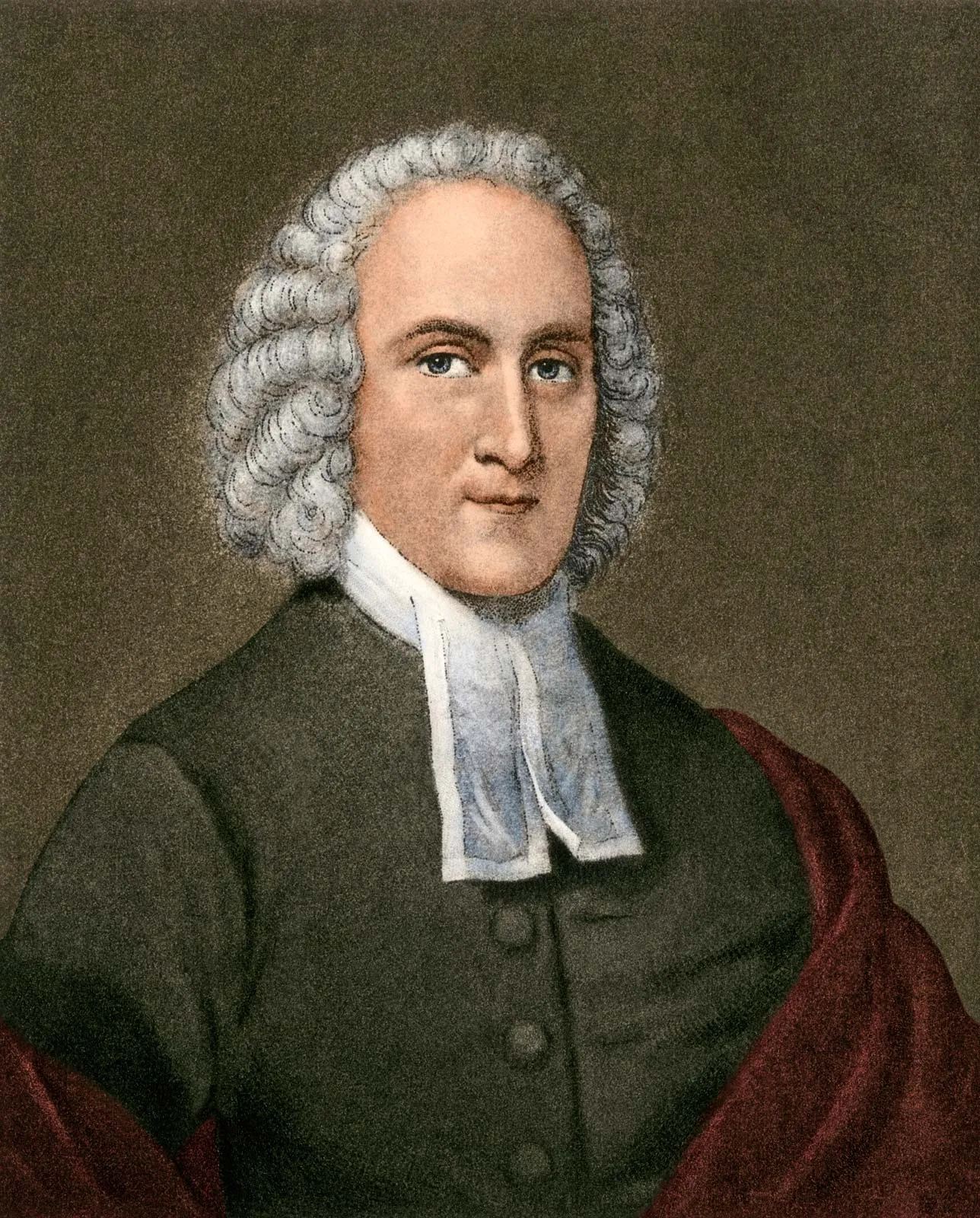
Today’s Leader of Faith
JONATHAN EDWARDS
Home Call : 22 March 1758
Great Awakening Theologian, American revivalist, Philosopher, Missionary, Educator.
Jonathan Edwards (1703–1758) was a key figure in the First Great Awakening and one of America’s most influential theologians. He is best known for his powerful sermons, such as Sinners in the Hands of an Angry God, which emphasized God’s sovereignty, human sinfulness, and the need for true conversion. He upheld Calvinist theology and was instrumental in reviving religious fervor in New England. Rooted in Puritan heritage, he played a key role in the First Great Awakening, overseeing revivals in Northampton, Massachusetts (1733–35). Later in life, he became the president of the College of New Jersey (now Princeton University).
Edwards was the only son among 11 children of Timothy Edwards, a minister in Connecticut. He was educated at home and entered Yale at 13, deeply influenced by John Locke’s philosophy. Fascinated by science, Edwards studied nature as evidence of God’s design while maintaining theological convictions. He briefly served as a supply pastor in New York (1722-1723) and later tutored at Yale. He was Ordained in 1727, he became assistant minister to his grandfather Solomon Stoddard in Northampton, eventually succeeding him in 1729.
Edwards played a central role in the First Great Awakening, emphasizing God’s sovereignty in salvation. His 1731 Boston lecture marked his first public critique of Arminianism. The Northampton revival of 1733–1735 led to nearly 300 conversions. He met George Whitefield in 1739, and their collaboration revived religious fervor. His famous 1741 sermon, Sinners in the Hands of an Angry God, warned of divine wrath but was delivered in a calm, solemn tone. Opposition to the revival led him to write The Distinguishing Marks of a Work of the Spirit of God (1741) and Religious Affections (1746) to defend true spiritual experiences. His 1749 memoir of David Brainerd highlighted Brainerd’s missionary zeal and served as a model of devotion. He was involved in slavery, which has been reevaluated in modern times.
Edwards faced conflict with his congregation over church membership requirements, leading to his dismissal in 1750. He later served as a missionary and became president of the College of New Jersey (Princeton) before dying in 1758. His theological writings influenced New England Congregationalism, and his descendants made significant cultural contributions.
